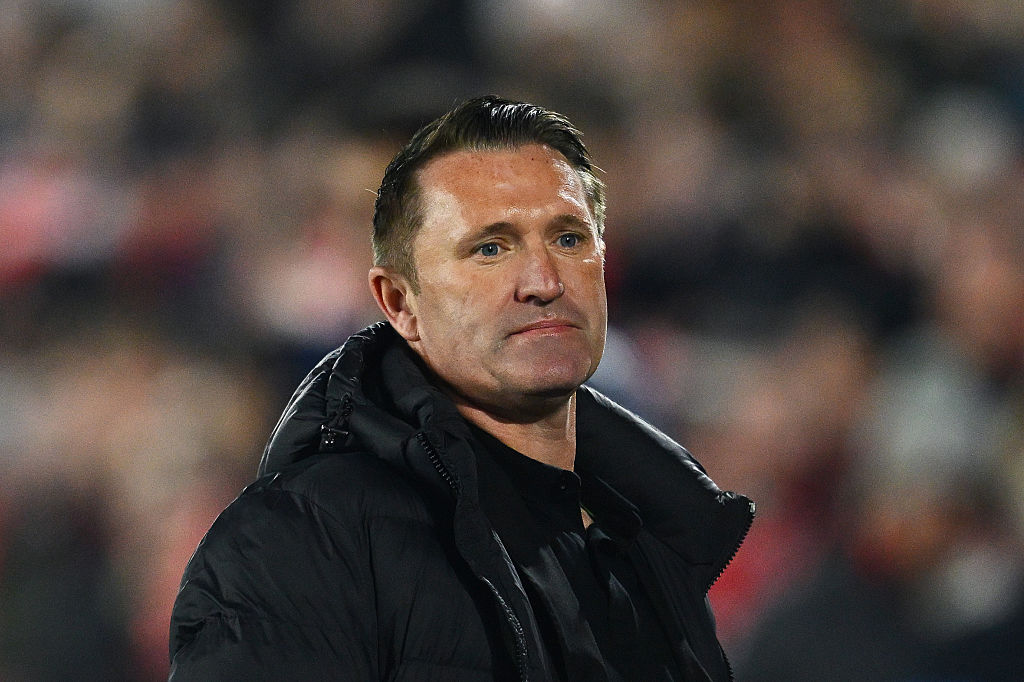'We didn't win, but beautiful football was our legacy': the late Johan Neeskens in one of his last-ever interviews - on Total Football, Johan Cruyff and heartbreak in 1974
Earlier this year, FourFourTwo spoke to Johan Neeskens for a feature on Holland's great 1974 side, not knowing it would be one of the final interviews
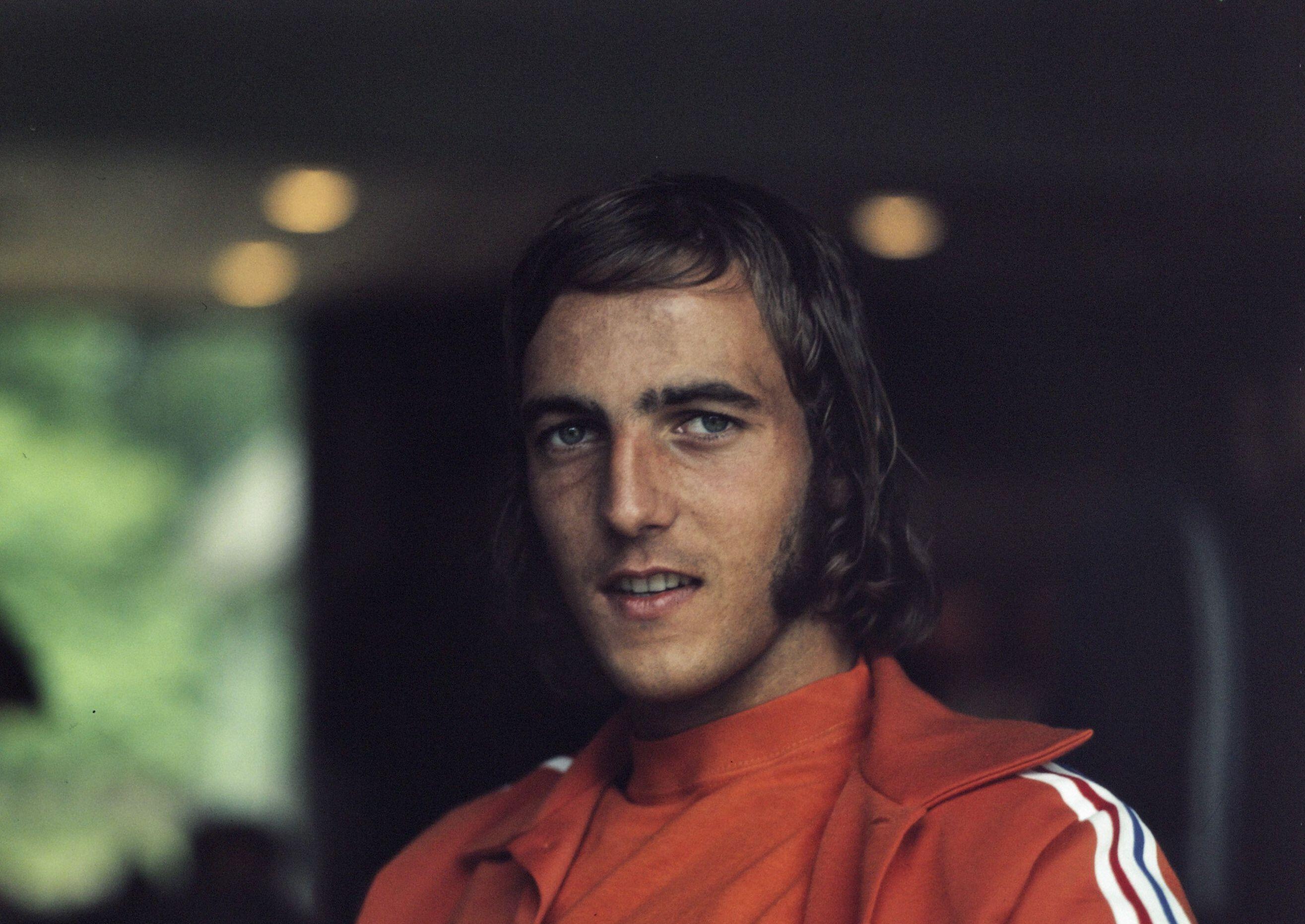
The best features, fun and footballing quizzes, straight to your inbox every week.
You are now subscribed
Your newsletter sign-up was successful
Want to add more newsletters?

Five times a week
FourFourTwo Daily
Fantastic football content straight to your inbox! From the latest transfer news, quizzes, videos, features and interviews with the biggest names in the game, plus lots more.

Once a week
...And it’s LIVE!
Sign up to our FREE live football newsletter, tracking all of the biggest games available to watch on the device of your choice. Never miss a kick-off!
Join the club
Get full access to premium articles, exclusive features and a growing list of member rewards.
Back in May, I wrote a feature for FourFourTwo about the iconic Netherlands side of 1974 – the story of how 'Total Football', with its positional interchange and heavy-pressing, changed the beautiful game forever.
When mapping out potential interviewees, one man topped the list: Johan Neeskens. The former midfielder was now the most recognisable living remnant of that team following the passing of his former team-mate Johan Cruyff and manager Rinus Michels.
While not quite as feted as that duo, Neeskens had been an integral member of the team, providing guile and goals from the centre of the pitch, and scoring in the final against West Germany.
Ajax, glory and mixing it with Cruyff
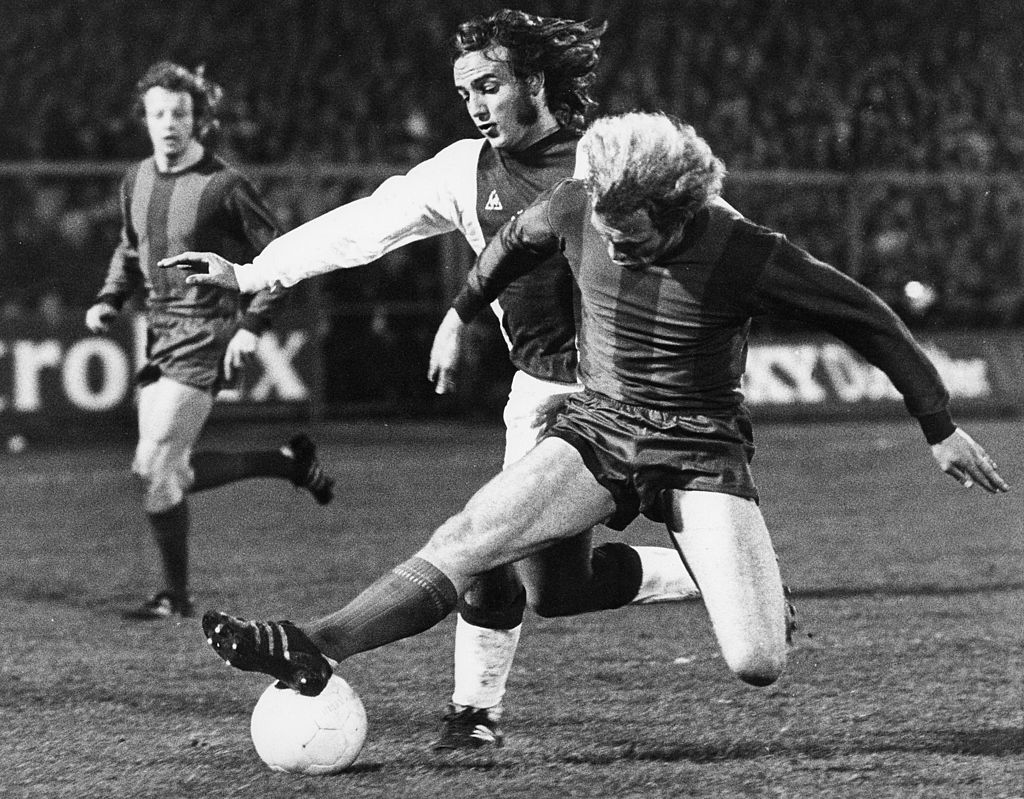
Unfortunately, I was informed by the Dutch FA that Mr Neeskens was in Asia for a FIFA conference – his family kindly let me know that he wouldn’t be available before my deadline but thanked me for my interest. My disappointment was remedied by two great alternatives in defenders Ruud Kroll and Wim Rijsbergen, who provided me with some fabulous stories of that summer in West Germany.
However, a few days later, I received an email from the Neeskens family saying that he would, in fact, be keen to contribute if it wasn’t too late. Naturally, when Johan Neeskens is up for a chat, you don’t say no. What followed must have been one of his final interviews with a British publication before his passing earlier this week.
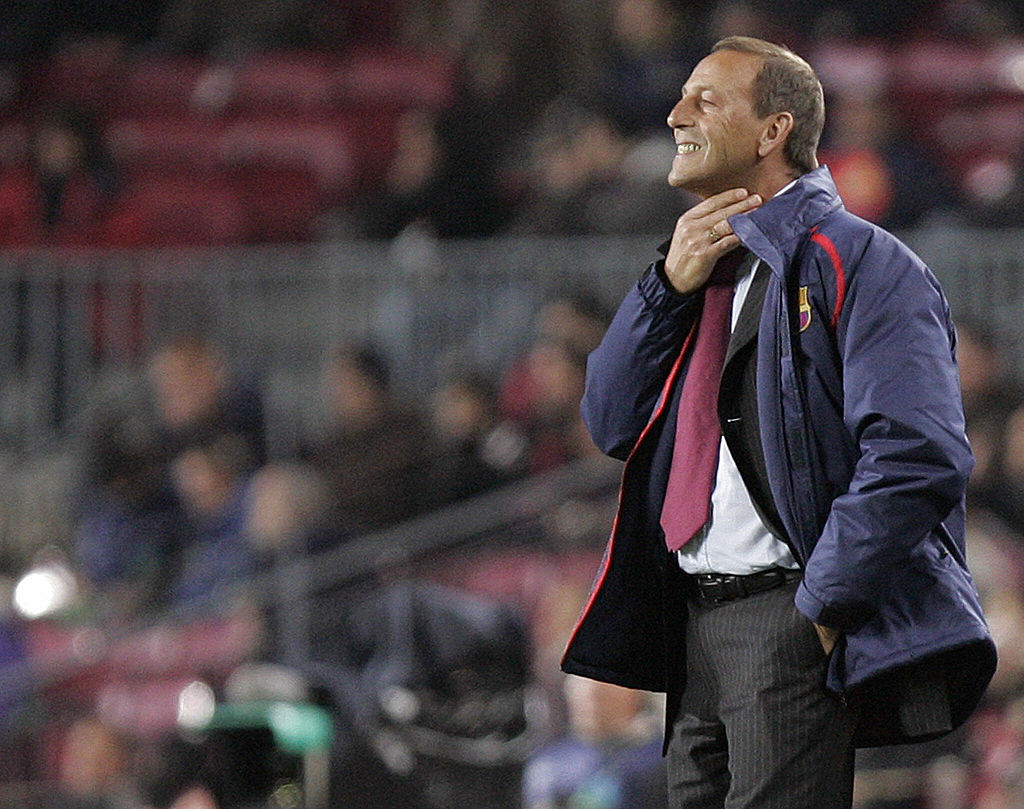
Fifty-four years after signing for Amsterdam giants Ajax, the 73-year-old still proudly informed me of that team’s legendary achievements. “We changed everything,” he said, in perfect English. “We won the European Cup, what’s now the Champions League, three times in a row between 1971 and 1973, and it really put Dutch football on the map. We were twice Dutch champions and twice cup winners as well during that period. We were very, very strong.
“Rinus Michels wanted to play a hard pressing game with an offside trap. It was great to join a team like that. I was a box-to-box player. I was the man, together with Johan Cruyff, who started the press. The rest of the team followed our lead.”
The best features, fun and footballing quizzes, straight to your inbox every week.
When speaking about Cruyff – the floppy-haired, talismanic figure for those Ajax sides as well as the great 1974 Netherlands team – Neeskens was effusive. “I think he was not only a genius with the ball at his feet but he could read the game so quickly,” he recalled. “The coach would set us up but Johan would see how the game was playing out in the early stages and he would begin to conduct us.
“He’d say to me, ‘Hey, you need to play deeper’, or ‘Drop further back and bring the ball forward’, or ‘This is where the gaps are, this is where you need to play’. It was fantastic as you could totally trust his judgement. We would cause teams huge problems from then on. He was the best player in the whole world in the 1970s.”
VIDEO Why Enzo Maresca's Chelsea Are The Real Deal
The summer of Total Football
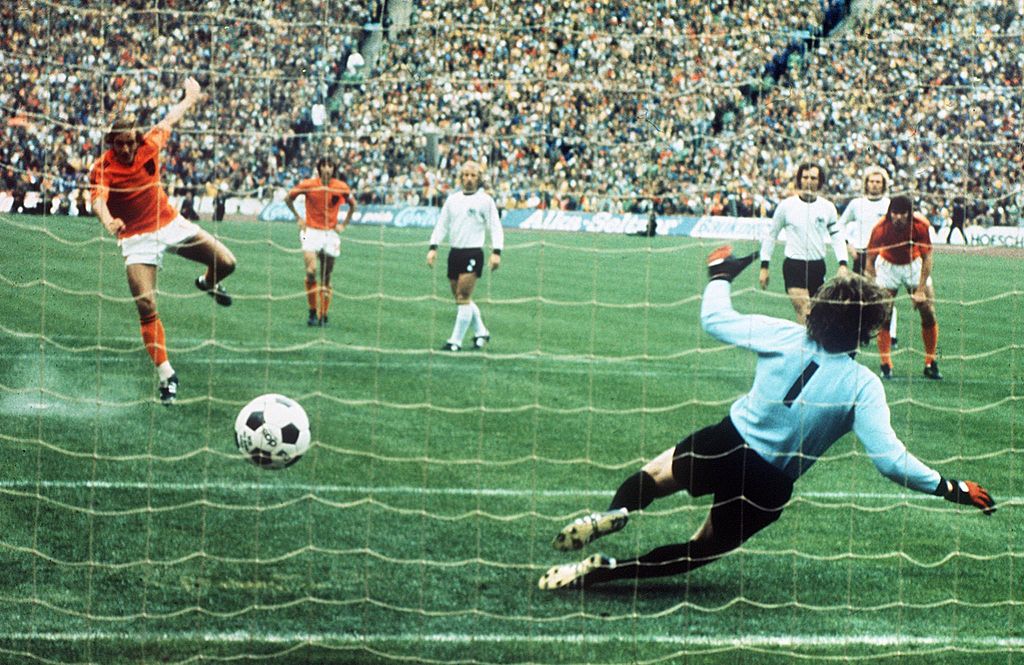
Neeskens would follow Cruyff and Michels to Barcelona in 1974, but it was the trio’s work that summer which left the biggest mark on football – and it came as a huge surprise. Despite a thriving domestic game, the Netherlands were nobodies on the international stage at that time, having last qualified for a World Cup in 1938 and never reached a Euros.
“We didn’t expect to have a good World Cup,” Neeskens recalled. “Before the tournament, we played some friendly games and didn’t get good results. Michels (who had become the national team coach on the eve of the tournament) was trying to implement his pressing blueprint and it hadn’t clicked yet. Before we went, the public opinion and the press said we’d be out in the first round. But then we beat Argentina 4-1 in a friendly and the mood changed.
“We started the group stage well, against Uruguay – we won the first game 2-0. That was important, Then we drew against Sweden before defeating a very strong Bulgaria side 4-1. From that time I think we started believing in ourselves. We had a lot of confidence in how it was working and the atmosphere around the camp was very good. So we were really believing that we could go a long way in the tournament. But we didn’t sit around talking about it. We had a job to do.”
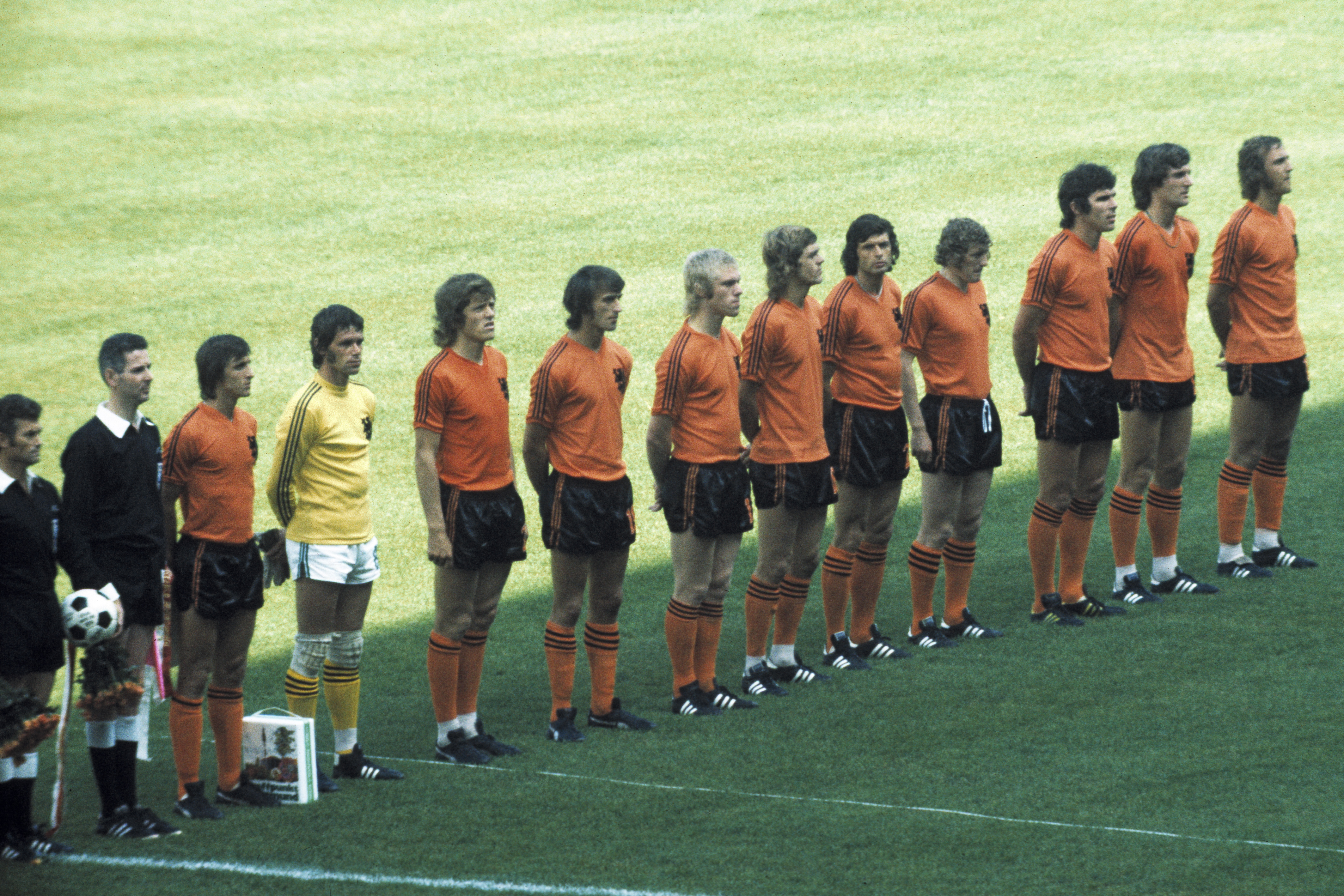
The legendary ‘Cruyff Turn’ was first performed to a stunned global audience in that Sweden game – Holland’s no.14 turning his marker inside-out with an audacious dummy. Fans already in awe of the Netherlands’ free-flowing, rebellious style claimed this as little less than high art.
The Netherlands would go on to reach the final against fierce rivals and neighbours West Germany. “We wanted to beat them on their own ground,” remembered Neeskens. “We were confident that we could do it. But Germany had a very good team.”
The Dutch got off to a perfect start thanks to a Neeskens penalty, though his third strike of the tournament did come with a slice of luck. “I actually changed my mind at the last second and tried to put it in the opposite corner – something a player must never do,” he remembered. “It went straight down the middle and, thankfully, into the goal. People thought that was very clever but it was an accident.”
West Germany struck back twice, however, to send the Dutch side home empty handed. Despite the defeat, however, Neeskens and his team-mates were aware that they’d achieved something special. “We’d done something beautiful,” he said proudly. “We were the team that people most enjoyed watching. People still often say it’s the most beautiful football they’d ever seen – 50 years later. Total football changed the world.
“We stayed in a hotel that night and we were all very disappointed, even as we made our way home by plane and then by bus. As we drew closer to Amsterdam, we started to see more and more orange flags and jerseys in the streets. Then more. Soon, thousands, tens of thousands, had come out to greet us. To thank us for our efforts. It was beautiful.”
"Beauty was our legacy"
Neeskens would go on to reach the final of the following World Cup, as the Netherlands once again lost to the hosts, this time Argentina. While the group never got their hands on any silverware, they are fondly remembered as the greatest side never to do so.
“I suppose that was our legacy,” Neeskens told FourFourTwo. “We played beautiful football. Sometimes that’s its own prize.”
So eloquent, warm and engaged was he that day, I could never have imagined that that interview would be one of his last with British media. It saddens me deeply to hear of his passing at the age of 73 and I'll be eternally grateful for his time and help.
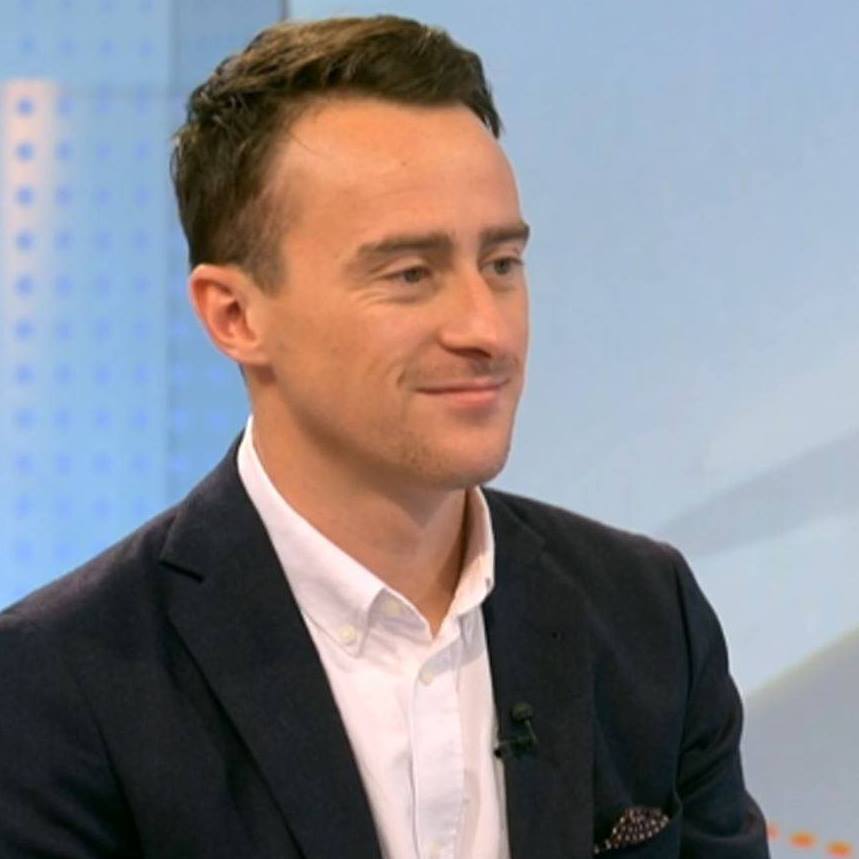
Ed is a staff writer at FourFourTwo, working across the magazine and website. A German speaker, he’s been working as a football reporter in Berlin since 2015, predominantly covering the Bundesliga and Germany's national team. Favourite FFT features include an exclusive interview with Jude Bellingham following the youngster’s move to Borussia Dortmund in 2020, a history of the Berlin Derby since the fall of the Wall and a celebration of Kevin Keegan’s playing career.
 Join The Club
Join The Club










